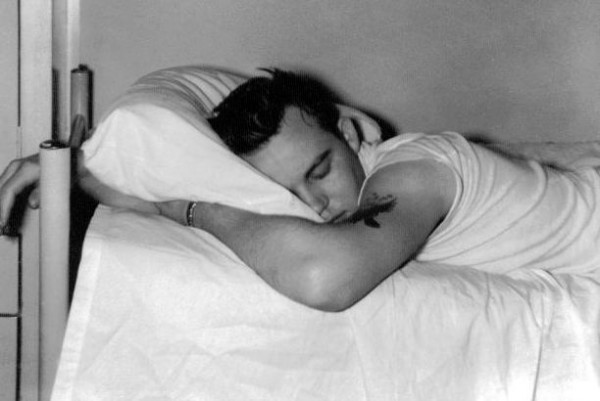Despite centuries of study, science doesn’t fully understand why humans, or other animals, need to sleep.
Though there’s little to no explanation as to why we need to lose consciousness for a third of the day or more, what is clear is what happens when one doesn’t get it. The health impacts are far-reaching, ranging from decreased focus to higher risk of heart attack and stroke. There’s even a known link between sleep deprivation and obesity.
However, getting a good night’s sleep often isn’t easy for an entrepreneur. The 7-9 hours recommended for most adults can be elusive for those running their own business as both the demanding hours and high stress levels can easily chip away at the hours of shut eye an entrepreneur gets.
However, avoiding sleep is not an option either. Though many entrepreneurs pride themselves on their ability to “go without sleep”, the truth is that sleep deprivation impairs you almost the same amount as being legally drunk, making you a hazard both on the road and in the boardroom.
So how can you ensure you get the sleep that you need? Here are five tips to help you get the amount of shuteye you need to function the next day.
1. Eliminate Stimulants (in particular Caffeine) Before Bed
Caffeine, as well as other stimulants, can keep your mind and body awake long after it’s time to go to sleep.
Caffeine affects everyone differently, but most people will need to either stop or cut back on caffeine at least 4 hours before bedtime to make sure that it is out of their system.
This means that, if your normal bedtime is 11 PM, you need to stop drinking caffeine (or seriously curtailing its use) at dinner time. If you use caffeine regularly, stopping cold turkey could create more trouble than it solves through withdrawal symptoms. If that’s the case, you can still benefit by having less in your system when it comes time to sleep.
2. Relax Before Bedtime
If you attempt to jump straight from work right into bed, you’re likely going to find that it takes a long time for your body to relax, unwind and then go to sleep.
Most people need to have a buffer between work, family and sleep, something that is relaxing, ideally dimly-lit and gets both body and mind ready for sleep.
This can be something like taking a hot bath, reading a book, doing light exercise, listening to calming music, etc. As long as the activity isn’t too bright (meaning TV watching may not be wise) and helps relax your body and mind, it can help get you in the right mindset to fall asleep.
3. Spend Money on Your Bed
Considering that you spend approximately a third of your life in your bed, it makes sense to spend money getting the most comfortable mattress, best pillows and other accessories that you can reasonably get.
A comfortable mattress that helps you sleep better can improve your overall quality of life and is usually well worth the investment.
Besides, the more you look forward to crawling in bed and getting sleep the more likely you are going to do so. Having an uncomfortable mattress is a great way to ensure you don’t want to spend time getting the rest you need.
4. Avoid Technology in the Bedroom
Strong lights cause your mind to wake up instinctively and reduce the amount of melatonin, an important sleep hormone. Backlit devices such as LCD monitors, smartphones and tablets produce a lot of light and can wake your brain up.
If you want to use your iPhone as an alarm clock, keep the screen off and don’t read on anything with backlighting before going to bed.
In a similar vein, you may want to trade out the light bulbs in your bedroom for softer, dimmer bulbs that won’t blind you.
5. Maintain a Regular Sleep Schedule and One Bedroom Rule
Though this may be the hardest thing for an entrepreneur, especially one balancing work and a family, it’s crucial to have a sleep schedule for your self that includes a consistent bedtime and a consistent wake time.
Sadly, this includes weekends.
If you feel the need to nap during the day, it’s best to do it earlier in the afternoon rather than a few hours before bed, making it imperative that you fight off the after-dinner grogginess.
Also, it’s important to use your bedroom for just sleep and sex. Using it to watch TV, do work or just about anything else can prevent your body from relaxing fully when it’s in there.
If you make it clear what the bedroom is for, it will have a subconscious impact on your mind to start getting ready for sleep when you go inside it. This should help you in both falling asleep and staying there.
If these and other tips to get more sleep don’t help you, you may want to consider trying over-the-counter medication. Most medicines available today are non-habit forming but should still only be used to fight occasional bouts of sleeplessness, not as long term solutions.
If those fail, consider seeing a doctor about your sleep troubles, especially if your lack of sleep is impacting your day-to-day life.
Fortunately, most sleep disorders are easily controlled and treated but they first have to be diagnosed.
So, if all else fails, don’t hesitate to talk with your physician about your sleep problems and get the help you need to stay happy and healthy.
This guest post is written by Lior Levin, a marketing consultant for a psd to html 5 service and, who also consults for a to do list application company.





